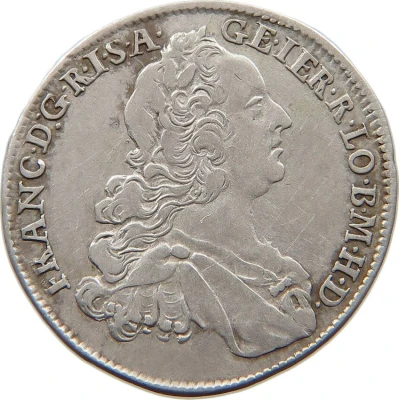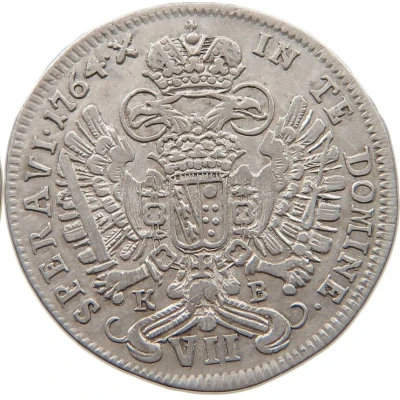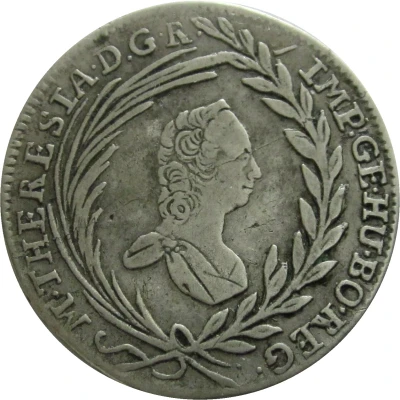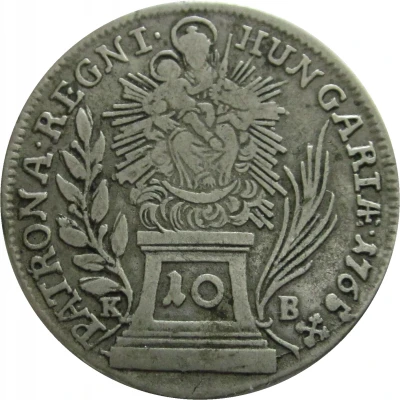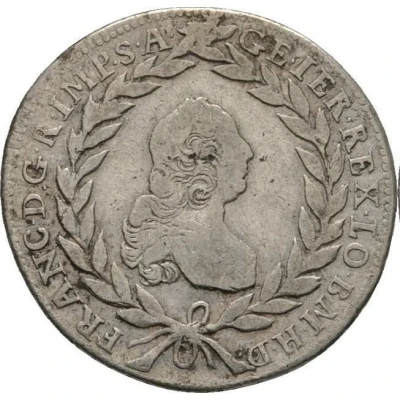
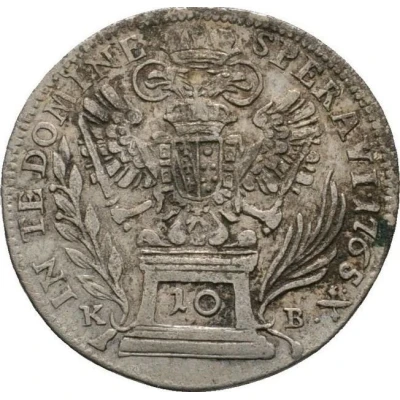

© Macho & Chlapovič a.s.
10 Kreuzers - Francis I of Lorraine, as co-ruler
| Silver | 3.7 g | 27 mm |
| Issuer | Hungary |
|---|---|
| Emperor | Francis I (1745-1765) |
| Type | Standard circulation coin |
| Years | 1755-1765 |
| Value | 10 Kreuzers (Krajczár) (⅙) |
| Currency | Austro-Hungarian Florin (1754-1857) |
| Composition | Silver |
| Weight | 3.7 g |
| Diameter | 27 mm |
| Shape | Round |
| Orientation | Medal alignment ↑↑ |
| Demonetized | Yes |
| Updated | 2024-10-05 |
| Numista | N#317387 |
|---|---|
| Rarity index | 94% |
Reverse
Crowned double-headed eagle on pedestal containing value, flanked by branches. On the breast, arms of Lorraine and Tuscany with the order of the Golden Fleece.
Pedestal divides mintmark.
Script: Latin
Lettering:
IN TE DOMINE SPERAVI 1765 X
10
K B
Translation: I put my hope in You, Lord
Comment
"X" after the year in the legend indicates values comply with the Convetionsthaler.Lettering varies GE.IER.R. and GE.IER.REX.
After the death of Francis I of Lorraine (1765), Maria Theresia continued to mint the coins in his name until her death (1780).
All these issues bear the year 1765, under the bust, followed by the mintmark "B" a serial letter indicates the actual minting year: 1765A is 1766, 1765B is 1767 ...
In case of these posthumous issues, the mintmark followed by the serial letter of the year is on the obverse:
The mintmasters' mark is on the reverse:
E.V.M. - D. = Ignatz Krammer Edler von Münzburg and Pascal Josef von Damiani: Mint Masters
Though mentioned in documentations, the existence of the following pieces is questionable, therefore they are not registered below:
KB: 1754, 1757, 1758, 1761, 1762, 1763
Interesting fact
One interesting fact about the 10 Kreuzers coin featuring Francis I of Lorraine is that it was minted during a time of great change and political upheaval in Europe. The coin was issued in 1755, just a few years before the outbreak of the Seven Years' War, which would have a profound impact on the political landscape of the continent. Despite this, the coin remains a testament to the enduring legacy of Francis I and the Habsburg monarchy, which ruled over a vast portion of Europe for centuries.
